
It can be challenging to find quality resources dealing with the intersection of the Christian faith and law. Our aim with this recommended resources page is to curate a collection of various books, articles, people, organisations and links that we have found to be beneficial and make them available here, so that Christians in law can be encouraged and enriched in the faith and good work.
Liturgy for Marking the Start of a New Legal Year by David McIlroy. This liturgy was developed for a special service to mark the start of the new legal year hosted by the Kirby Laing Centre in partnership with Lawyers’ Christian Fellowship. It arose from the historic practice of judges in the U.K. who in the past would mark the beginning of the new legal year (October) with a service of prayer and dedication. We hope that it may help all Christian legal practitioners in dedicating their work the the Lord.
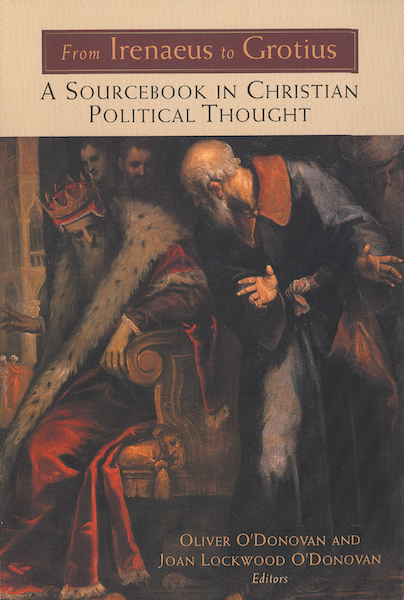
by Oliver O'Donovan and Joan Lockwood O'Donovan
No-one has done more in this generation than the O’Donovans to remind Christians interested in law and politics that Christians theologians have been thinking about these questions for 2,000 years. This book is a sourcebook bringing together in one place 1,500 years of writings by Christian thought leaders and introducing each theologian so that their work can be read in context. This book is essential reading for anyone who wants to do their thinking about law in the company of those who have shaped the Christian tradition of reflection on law, government and justice.
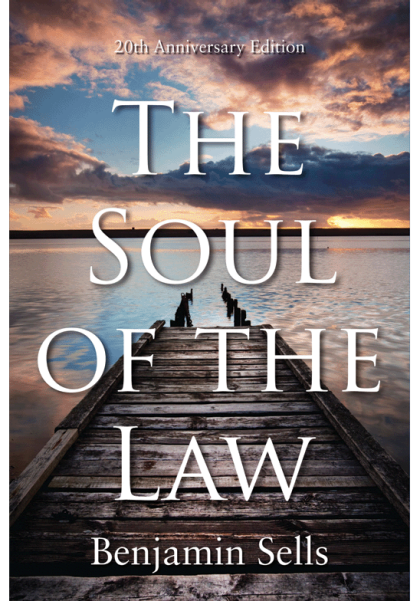
by Benjamin Sells
Written by an attorney and psychotherapist who counsels lawyers, this essential resource examines the mentality that tears down lawyers and explains what's gone wrong and why, offering ideas for bringing balance back into daily lives, society, and the law. The book provides an intriguing approach to understanding that you don't have to let a career consume you, and purpose and fullfilment are obtainable.
By living the advice in this book you can lead a quiet, normal, happy life in spite of the world around you. This book is a must read for anyone who contemplates the law or being a lawyer, and is essential reading for those already in the field.
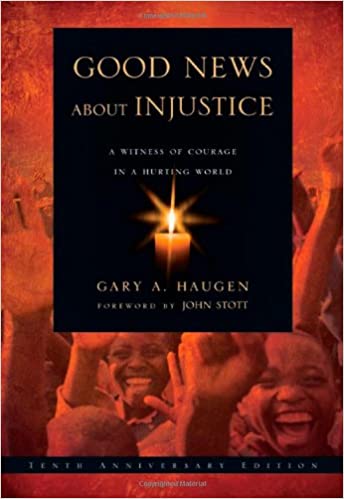
by Gary A. Haugen
Haugen’s book Good News about Injustice explains how, as a UN investigator into Rwanda’s genocide, he was driven back to the Bible, and especially the Psalms, and discovered there God’s heart for justice. This revelation led Haugen to found International Justice Mission which has worked tirelessly to ensure that the poor are protected by the rule of law in places where they would otherwise have no-one else to defend them.
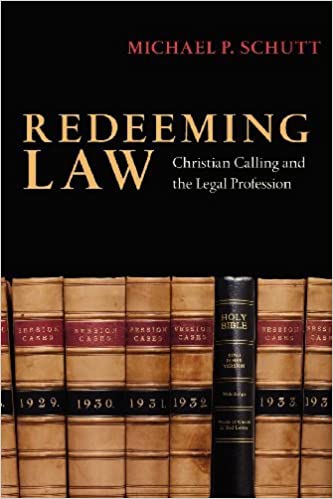
by Michael P. Schutt
Schutt makes a clear case for how being a lawyer can be a legitimate and rewarding vocation for those Christians who are called to it. He helpfully discusses the emotional and spiritual pitfalls to which lawyers are especially prey, and describes how to cultivate the disciplines and rewards which will sustain a godly legal career in the long run.
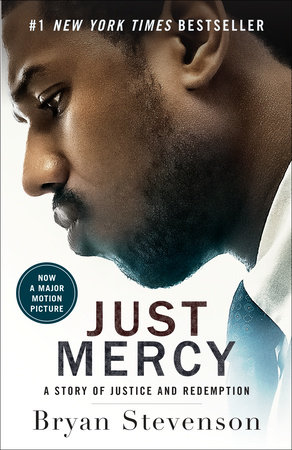
by Bryan Stevenson
Bryan Stevenson’s work to bring about justice in the American penal system has made into a film starring Michael B. Jordan and Jamie Foxx. Equal Justice Initiative, which he leads, is committed to challenging racial injustice eliminating excessive and unfair sentencing, exonerating innocent death row prisoners, confronting abuse of the incarcerated and the mentally ill, and aiding children prosecuted as adults in the criminal courts. Stevenson is motivated by his upbringing in the African Methodist Episcopal Church where he learned that people should be given second chances and should always be treated with dignity.
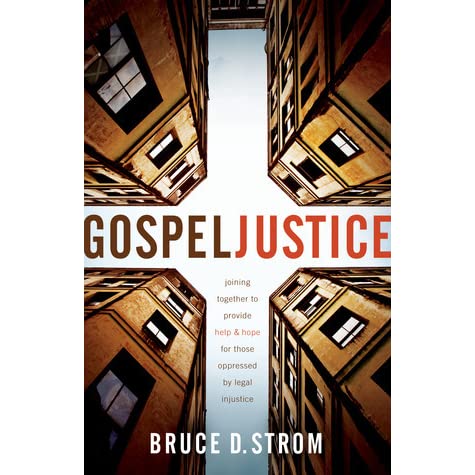
by Bruce D. Strom
In an inspiring book, Strom tells his story about how God’s calling for justice for the poor led him to run an organisation offering free legal care to some of the most vulnerable in the USA. Strom’s book is a call for American lawyers, churches and the whole body of Christ to recognise that following justice means being deeply concerned about legal justice for the oppressed.
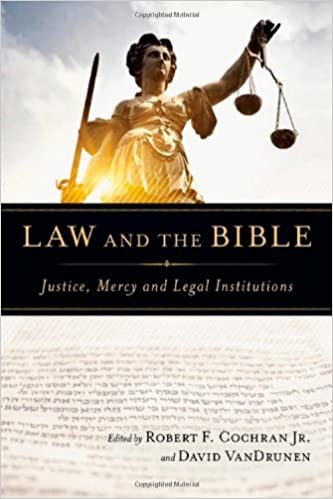
Robert F. Cochran and David VanDrunen eds.
Each chapter in this book is written by both an American lawyer and a theologian. They seek to reflect on different aspects of the Bible’s message and to apply them to practical questions today. The book seeks to address the question: What inspired light does the Bible shed on Christians? participation in contemporary legal systems? It concludes that more often than not the Bible overturns our faulty assumptions and skewed commitments rather than bolsters them. In the process, God gives us greater insight into what all of life, including law, should be.
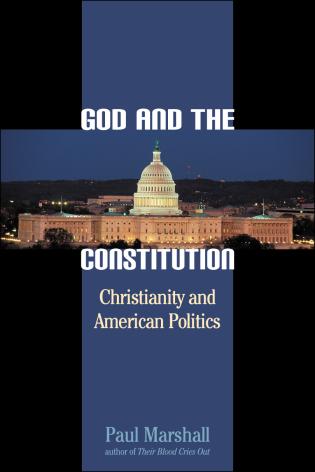
by Paul Marshall
Although rooted in its American context, God and the Constitution, like Marshall’s earlier book Thine is the Kingdom: A Biblical Perspective on the Nature of Government and Politics Today (1984) is an invaluable exploration of the biblical background to modern issues and the contributions Christian thinking has made to the institutions of law and government in the West today.
A Biblical Critique of Secular Justice and Critical Theory, by Dr. Timothy Kellar.
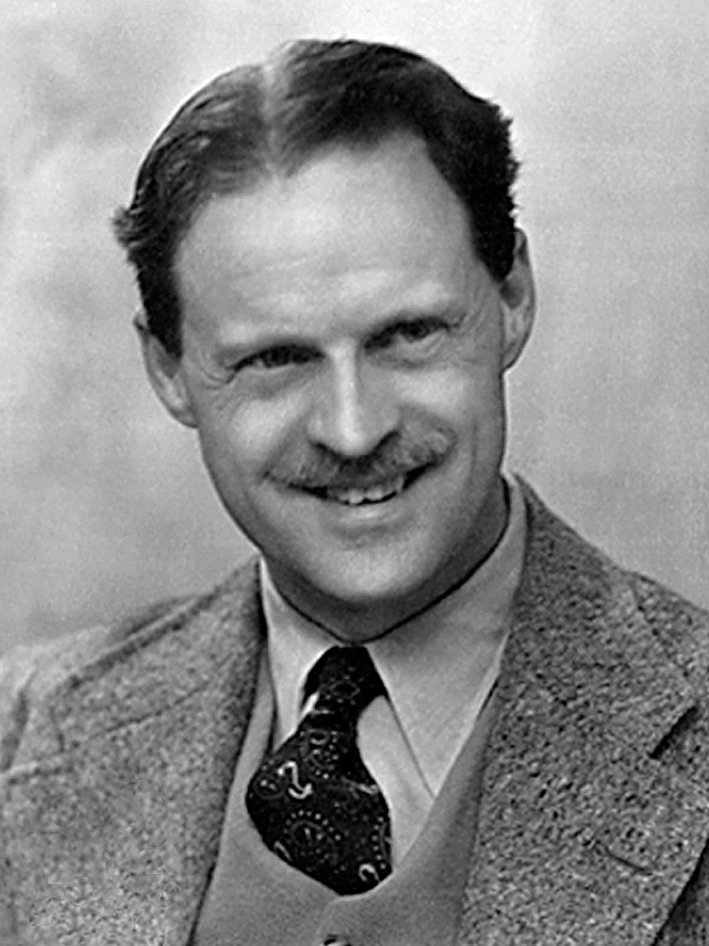
Sir Norman Anderson was a missionary in the Middle East, and a successful academic, rising to become Professor of Oriental Laws in the University of London, Director of the Institute of Advanced Legal Studies, Director of SOAS and the first Chairman of the Church of England’s House of Laity in the General Synod. He was a great friend of John Stott.
Anderson’s academic specialism was in oriental laws, particularly Islamic law as applied in Africa and the Middle East but he was widely read on other religions, including Judaism, Buddhism and Hinduism. Anderson was a paragon of evangelical scholarship. He was charitable and fair-minded in expounding the ideas of non-Christian faiths but insistent on the uniqueness of Jesus Christ.
His publications included:
To find out more, including what Anderson said in his sermons and other unpublished talks, read ‘The Theology of Law of Norman Anderson’
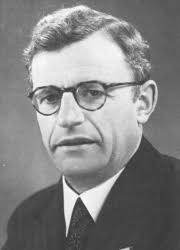
Herman Dooyeweerd was a twentieth century Dutch legal philosopher who argued that human nature and reality as a whole are only properly understood when interpreted in the light of the Creation – Fall – Redemption motif.
He identified 15 different aspects of reality (numerical, spatial, kinematic (to do with movement), physical, biotic (organic), sensitive-psychical, logical, cultural-historical, sign-mode (symbolic), social, economic, aesthetic, juridical (legal), ethical, certitudinal) and argued that while each of these cannot be reduced to any of the others, each needs to be understood in terms of its interaction with all the other aspects of reality. The 15 aspects of reality are God-given, and although they can be theoretically distinguished they co-inhere in the real world. According to Dooyeweerd, only Christians can truly understand reality and offer an adequate philosophical interpretation of it, because only Christians are able to see reality as it truly is, finding its unity in God’s purposes.
All secular philosophies which attempt to explain reality in terms of something within it end up absolutizing an aspect of reality. So, for example, the Chicago School reduces all of human life to economics. Other philosophies reduce all of human life to psychology, or to biology, or to culture and history. Reality is more complex, argues Dooyeweerd, than any single aspect of it
Dooyeweerd’s philosophy is an application of Abraham Kuyper’s idea of sphere sovereignty to different disciplines of human enquiry. Each aspect of reality, argues Dooyeweerd, has its own special science, its own distinct discipline of enquiry.
The best introduction in English to Dooyeweerd’s ideas is Jonathan Chaplin, Herman Dooyeweerd: Christian Philosopher of State and Civil Society (2011)
Dooyeweerd’s books available in English include:
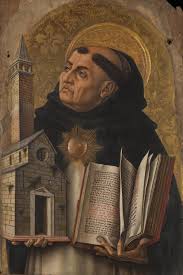
St. Thomas Aquinas sought to defend the Christian faith against the suggestion that reason could produce one truth and faith another. His success in synthesising theology and philosophy has led to the mistaken view that his philosophy (taken from Aristotle) overrides his concern for the Bible. In fact, the sheer number of biblical commentaries Aquinas wrote and the logic he develops in his Summa Theologiae reveal him to be concerned to expound Christian truth in the light of the person and work of the Triune God.
Aquinas’s Summa Theologiae, excerpts from which are still used as an introduction to his thought was intended by him to operate as a guide to reading his biblical commentaries. As a Christian theologian, the centrepiece of Aquinas’s thinking about law is in fact in his biblical commentaries, including in particular his commentary on Romans. Aquinas’s commentary on Romans has only recently become available in English. It can be found here to read for free.
The effect of reading Aquinas this way up can be explored in the articles: ‘What’s at stake in natural law?’ and ‘A Trinitarian Reading of Aquinas’s Treatise on Law’.
Other helpful resources for understanding Aquinas:
Founded in 1963, Law & Justice is a peer reviewed journal published by the Edmund Plowden Trust for the purpose of assisting and promoting the study and understanding of the law of the UKand its legal systems in themselves and by comparing them with the laws and systems of other countries and by considering them in the light of Christian sources such as The Declaration of Religious Freedom (of the Second Vatican Council), International Law, Canon Law and the Law of Nature.
The Jubilee Centre seeks to apply biblical thinking to develop a vision for a just and thriving economic, social and political order. he Jubilee Centre exists to help Christians connect their faith to public life, and over the last 35 years two themes have emerged which summarise its approach: seeing biblical law as providing a roadmap for society and using the principle of right relationships as a compass to find our way.
Theos is a think tank which stimulates the debate about the place of religion in society, challenging and changing ideas through research, commentary and events. It has worn a reputation for high-quality research, respect for honest enquiry, and for raising the level of public debate in the UK about religion.
Founded in 1852, the LCF has a long history of uniting and equipping Christian lawyers and witnessing to members of the legal profession. The LCF wants to see society served by our legal system, bringing people justice in substance as well as by proper process, and to see such justice really helping the most vulnerable where it counts on the ground – because all of this exhibits our faith and hope in God, who is passionate about justice and righteousness.
Founded in 1856 by C.H. Spurgeon as the Pastors’ College, Spurgeon’s College is a Christ-centred, evangelical college in the Baptist tradition, engaged in biblical and theological education. Spurgeon’s College offers The Mission of Justice and the Theology of Law as part of its post-graduate courses leading to a Postgraduate Diploma in Theology or to a Master of Theology degree.
Spurgeon’s College offers a Master’s level unit on The Mission of Justice and the Theology of Law, taught by David McIlroy and by Jon Hyde.
The unit aims to introduce students to
The unit looks at the biblical material relating to law and justice, at natural law theories, at historical answers to the questions of law and justice from Augustine, to Aquinas, Luther, Calvin and the Anabaptists, as well as resources from systematic theology such as the Trinity and the Incarnation for formulating a theology of law. Contemporary questions addressed include reflections on human rights, the purpose of government and its relation to the Church, the role of Christian organisations in using law as a tool to bring about justice, and current theories of law in both philosophy and theology.
The unit can be taken on its own or, following completion of other units, as part of a Postgraduate Diploma in Theology or a MTh. degree.
If you want to know anything more about the materials on this website, to book David McIlroy to speak, or you’ve got any other question, please fill out the form here.